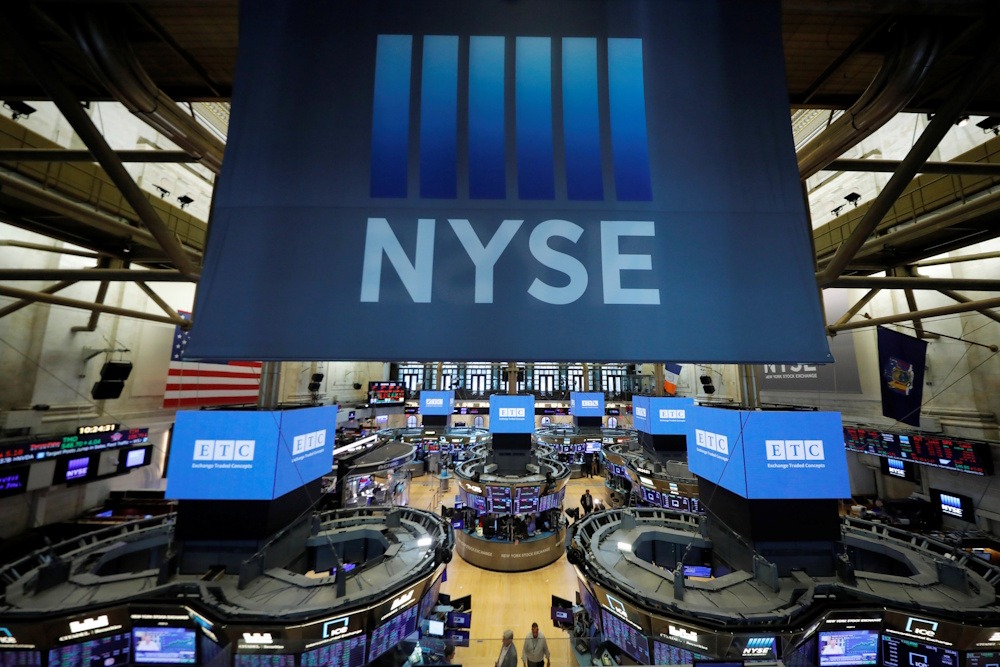
Dow Futures are experiencing a slight decline as markets prepare for the forthcoming release of important economic data, which has been delayed. Investors will have the opportunity to analyze metrics related to retail sales and producer prices, among other data points, as Federal Reserve officials deliberate on the future direction of U.S. interest rates. Google is intensifying its efforts to compete with Nvidia in the artificial intelligence chip sector, as server provider Dell prepares to announce its most recent earnings.
Dow futures indicated a downward trend on Tuesday, reflecting a degree of investor caution in anticipation of a significant release of new economic data this week. At 02:35, the Dow futures contract recorded a decrease of 42 points, reflecting a 0.1% decline, while S&P 500 futures saw a reduction of 7 points, also a 0.1% drop, and Nasdaq 100 futures fell by 46 points, corresponding to a 0.2% decrease. The primary indices experienced an uptick on Monday, marking the commencement of a trading week that is set to be abbreviated by the Thanksgiving holiday. Supporting the prevailing sentiment were remarks from Federal Reserve policymakers that strengthened expectations for a potential interest rate reduction at the central bank’s forthcoming meeting in December. Such expectations served to mitigate persistent apprehensions regarding a potential artificial intelligence bubble, particularly amid worries about the viability of substantial — and increasingly debt-driven — investments in infrastructure for this emerging technology. Nevertheless, analysts contended that this pessimistic narrative has shown indications of “stabilizing.” “Money isn’t exiting AI but instead shifting,” as cash flows into Google and chipmaker Broadcom to leverage the search giant’s new Gemini model and robust AI-optimized processors, the analysts noted. They noted that, in light of this context, “there’s a bit more comfort in the prospect of a year-end rally,” although investors remain cautious following a recent episode of volatility.
Attention now shifts to the economic calendar, which is once again filled with significant figures following the conclusion of an unprecedented federal government shutdown. The temporary closure has postponed numerous readings, thereby denying markets and rate-setters essential information required for making decisions regarding investments and borrowing costs. On Tuesday, the array of data will encompass indicators of retail sales and producer price growth. Consumer spending continues to be a vital component of the American economy, representing over two-thirds of overall activity, even as inflation seems to persist at elevated levels. However, given the duration of the shutdown, the figures pertain solely to September, and analysts have indicated that the economic landscape may have shifted in comparison to two months prior.
In light of the ambiguous state of the broader economy, the Federal Reserve confronts a challenging decision at its upcoming December meeting. Officials appear to be notably split regarding the decision to reduce rates for the third consecutive meeting or to maintain borrowing costs at the existing target range of 3.75% to 4%. San Francisco Fed President Mary Daly and Fed Governor Christopher Waller both expressed support for the former option in comments on Monday, emphasizing a preference for bolstering a weakening labor market rather than addressing persistent price increases. The probability of a 25-basis point rate cut next month has increased significantly. Nonetheless, certain members of the Federal Reserve have expressed some hesitation regarding cuts in a context where the central bank lacks the most recent economic data. Concurrently, there are concerns regarding the trajectory of interest rates following December. The reports indicate that the ultimate decision rests with Fed Chair Jerome Powell; however, each option presents considerable drawbacks and risks.
Google is significantly intensifying its efforts to compete with Nvidia in the AI chip sector, with Meta Platforms appearing as a prospective multibillion-dollar client, as reported by The Information on Monday evening. For years, Google has restricted access to its custom tensor processing units to its own cloud data centers, leasing them to companies that operate large-scale AI workloads. According to the reports, Google is now advocating for the deployment of its chips within customers’ own data centers, indicating a significant strategic shift. One of those clients is Meta, the proprietor of Facebook and Instagram. The firm is reportedly engaged in negotiations to allocate billions of dollars for the integration of Google’s TPUs into its data centers beginning in 2027, while also intending to lease TPU capacity from Google Cloud as soon as next year. Meta is presently dependent on Nvidia GPUs for its AI infrastructure. In premarket U.S. trading on Tuesday, shares of Google-parent Alphabet experienced an uptick, whereas Nvidia saw a decline of slightly more than 2%.
Additional corporate earnings are set to be released today, coinciding with the conclusion of the latest quarterly reporting period. Dell Technologies is set to be the focal point of the upcoming wave of earnings reports following the market close. The company, with customers such as CoreWeave and Elon Musk’s AI startup xAI, nearly doubled its annual profit growth target for the next four years in October, highlighting its significant investment in the increasing demand for its servers that support AI models. Annual growth in adjusted per-share profit is now projected to be at least 15%, an increase from the previous estimate of approximately 8%. Annualized revenue is anticipated to grow between 7% and 9% during the period, compared to an earlier estimate of 3% to 4%. The significant increase in spending on Dell’s servers has solidified its status as a key player in the AI boom. However, analysts have raised concerns that intense competition and the substantial costs associated with manufacturing these products may impact profit margins. In other developments, Chinese e-commerce leader Alibaba is set to announce its earnings prior to the market’s opening, alongside semiconductor manufacturer Analog Devices.
